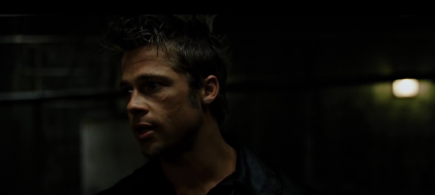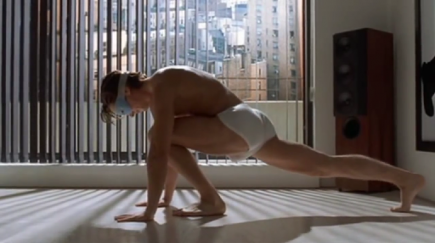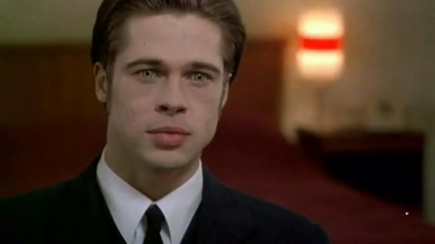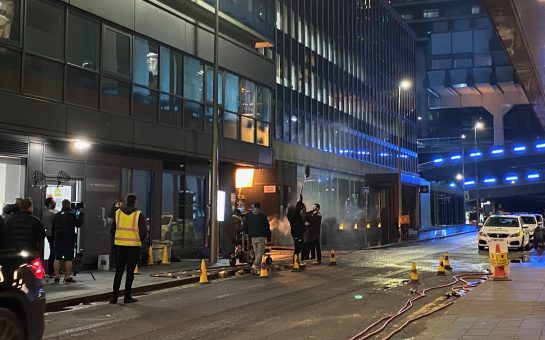Forget the first rule of Fight Club; you’ll want to tell everyone to visit Manchester’s Central Library when Grimm Up North kicks off its series of literary adaptations a week tonight.
The horror film festival organisers will launch their series of screenings at the famous building in St Peter’s Square on Thursday March 26 with 1999 cult classic Fight Club.
It will be followed the week after by a showing of 2000 psychological horror American Psycho. Each will be accompanied by a talk from a guest speaker, who will discuss what makes the film culturally significant as well as discussing their literary roots.
Rachid M’Rabty, a PhD student in English Literature at Manchester Metropolitan University is the guest speaker for Fight Club.
The film, directed by Academy Award nominee David Fincher, tells the tale of the meeting between a dull soap salesman (Edward Norton) and an eccentric criminal (Brad Pitt) who introduces him to a new form of therapy: the Fight Club.
Mr M’Rabty explained to MM why he feels the film is still such a cult classic today, summing it up as its ability to exemplify ‘the failings and trappings of the contemporary Western world’.
He said: “In their violent and destructive fantasies of mischief, mayhem and social bonding, the ‘Fight Clubbers’ tap into a rebellious, transgressive energy to resist and challenge contemporary culture and participate towards a vision of a society that is prepared to stand up against the onslaughts of the modern world.
“I think at some level, we all want to identify with that – now more importantly than ever as we are increasingly apathetic to the cultural, economic and political situations we find ourselves in.”

‘FAILINGS AND TRAPPINGS OF WESTERN WORLD’: PhD student Rachid M’Rabty says we all want to identify with the film
(© 20th Century Fox, via YouTube, with thanks)
He believes one of the hardest elements in adapting the novel would have been making the film’s shocking ending convincing.
“Successfully capturing the plot twist at the end which is pivotal to the storyline, without the audience rejecting it as completely ridiculous would’ve been a challenge,” he said.
“In fact, this was the author’s big concern throughout production – to which David Fincher responded, ‘if they’re still in the theatre, they’ll stay with it!’
“In the end I think the scene in the film where all is revealed stays true to the novel and the audience goes along with it.”
But the PhD student was less positive about the second film to be screened, describing it as poorly adapted.
“Credit to Harron for trying to turn one of the most unfilmable novels I can think of into a film – and it does have a few moments I did particularly enjoy,” he said.
“Bale’s performance was great, particularly his movements and enthusiasm talking about Huey Lewis and the News before putting an axe through Allen’s head – but overall it doesn’t have the same impact as the novel.
“Although having said that, I do think the novel is overrated too.”
Mr M’Rabty highlighted The Great Gatsby, directed by Baz Luhrmann and starring Leonardo DiCaprio, as an adaptation which failed to meet expectations.
“It was all too slick and stylish and, for me, it didn’t capture the dark aspects of the American Dream that the book did.”
Taking the position of guest speaker for American Psycho is Sorcha Ní Fhlainn, a lecturer in Film Studies and Contemporary American Literature at Manchester Metropolitan University.
The film stars world-famous actor Christian Bale as Patrick Bateman – an investment banker by day, and murderer by night.
Dr Ní Fhlainn explained to MM how the transition from novel to film proved successful, even despite its thoroughly graphic nature.
“They succeed by amplifying the ridiculousness of the situation, allowing you to get a sense of his delusion without needing to show absolutely everything,” she said.
“This also allows the book to exist as a separate entity to be analysed on its own, which is a smart move.”

‘PERFECT SATIRE OF 80s’ NARCISSISM’: Lecturer Sorcha Ní Fhlainn will be discussing American Psycho (© Lions Gate, via YouTube, with thanks)
She also revealed her personal admiration for the picture, which was directed by Canadian Mary Harron.
“American Psycho is a perfect satire of the narcissistic culture of the 80s, which has only grown today. The serial killer element is a destruction of the perfect body,” she said.
“Selfie culture has definitely developed from the 80s obsession on an idealised body, being heightened to the point where everything is about the individual.”
Yet Dr Ní Fhlainn was quick to admit that not all adaptations work, using the example of Interview with a Vampire sequel The Queen of the Damned, both written by Anne Rice.
“Interview with a Vampire is such a great adaptation, perfectly capturing the tone of the novel but Queen of the Damned is just a total mess,” she said.
“For one thing, they miss out a book in the series, skipping ahead to the third novel, without filling in any gaps so you start with a great obstacle for the audience to overcome.
“And the movie doesn’t make much narrative sense. It’s laden with plot holes and at the end of the day it ends up feeling nothing like the book – I actually use it as an example in lectures.
“The only redeeming feature to it is the soundtrack. Just skip the movie and buy the soundtrack, you’ll be much better off.”

‘PERFECTLY CAPTURES THE TONE’: Interview with a Vampire is a great adaptation of the novel, according to Dr Ní Fhlainn
(© Geffen Pictures, via YouTube, with thanks)
When asked about why she believed Fight Club was such a successful adaptation, the film lecturer revealed her thoughts.
“Fight Club is a cracking film to start with because as well as being an amazingly, gorgeous film it is at its heart about experiencing film. It constantly directs you to its own direction,” she said.
“One great example of this is the notion of the cigarette burns and this is so much more noticeable when watching the movie at a cinema, when you can distinctly notice the markings as they change reels.”
Greg Walker, Festival Manager for Grimm Up North, says he has been wanting to screen films in Manchester Central Library since it opened.
He said: “Having already screened in some of Manchester’s most amazing venues like the John Rylands Library and Ordsall Hall, it only seemed right to get in there as soon as possible!
“We did want to get in the library for last year’s Grimmfest but it was slightly too soon, but now we’re making our debut there with two classic literary adaptations in one of the most impressive libraries in the UK!”
The continuation of the series is dependent on the success of the first two screenings, but Dr Ní Fhlainn had a suggestion for a further film, should it be continued.
She said: “Silence of the Lambs would be a great film to pick: it’s an amazingly iconic film based on a brilliant book.
“It is such an evocative film and its intense close-ups are much more chilling when experienced in the cinema. It would also continue the serial killer theme.”
Fight Club will be screened at 5.30pm on Thursday March 26 at Central Library. Tickets, £5, are available here.
Top image courtesy of Grimm Up North, with thanks



